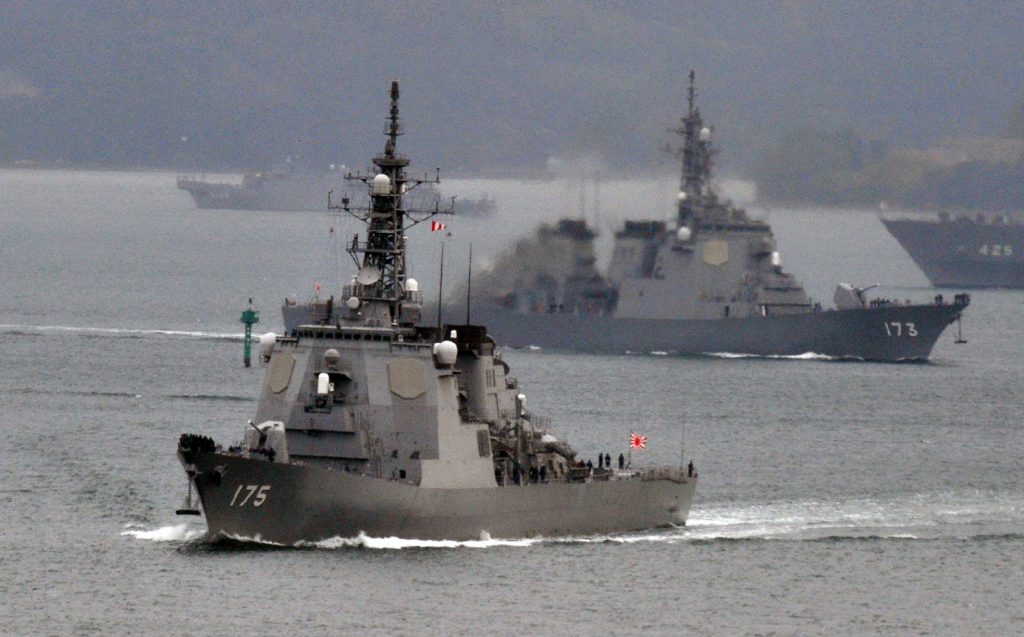
- ARAB NEWS
- 19 Jul 2025

KYOTO: The surviving family of Bunji Asakura (1894-1966), who was the third captain of the Imperial Japanese Navy battleship Musashi, has revealed that he voiced concern over the difference in national power between Japan and the United States during World War II.
Speaking in an interview ahead of the 80th anniversary of the outbreak of war between Japan and the United States on Dec. 8, 1941, Japan time, Michi Ogihara, Asakura’s 85-year-old daughter, said that he had let slip to his wife his concern over the recklessness of the war with the United States between around 1942 and the spring of 1943, when dark clouds started to hang over the war situation after the Japanese side shifted to a defensive strategy.
A native of Kurobe, Toyama Prefecture, central Japan, Asakura commanded the Musashi from December 1943 to August 1944.
Despite its reputation as one of the world’s most powerful battleship, together with the iconic Japanese battleship Yamato, the Musashi sank on Oct. 24, 1944, following attacks by the United States on the Sibuyan Sea in the Philippines. This was just two months after Asakura passed the command baton over to the fourth captain.
Ogihara lived in Etajima, Hiroshima Prefecture, western Japan, between the ages of 3 to 5, and then lived in Tokyo until she was forced to evacuate when she was in her second year of elementary school.
Asakura would rarely talk about work at home, but he said one night that the outlook would be grim if the war raged on, Ogihara said.
She also remembers him telling her mother, “I wonder if (the Japanese side) acknowledges the power gap (between Japan and the United States).”
Although she recalls being very happy to sit on her father’s lap after waking up late at night to see him return home, Ogihara said that Asakura’s words “power gap” stuck with her as she was the youngest sibling and hated to lose.
She learned from her mother shortly after the end of World War II that her father had been worried about the difference in national power with the United States.
“I think he uttered those words as he had seen many things when he went to Hawaii,” said Ogihara, a resident of Uji, Kyoto Prefecture, western Japan.
In April 1939, around two years and eight months before the Imperial Japanese Navy’s attack on Pearl Harbor, which triggered the war between the two nations, Asakura stopped by Honolulu in Hawaii as captain of the Iro vessel, and acquired knowledge on the United States.
At the time of his visit, the US cruiser USS Astoria had also made a port call at Honolulu on its way to Japan to deliver the remains of former Japanese Ambassador to the United States Hiroshi Saito, who had died in the United States.
According to telegrams by Japan’s Foreign Ministry and other materials, the mission by the US ship was a rare gesture by then US President Franklin D. Roosevelt for Saito, who had fallen ill while attempting to improve deteriorating bilateral ties.
Together with a Japanese diplomat, Asakura paid a visit to the USS Astoria to thank the US side’s mission.
“In those days, we weren’t able to say whatever we wanted,” Ogihara said. “I think people had to hold back.”
Asakura was in Singapore when the war ended. Following a period of detention, he returned to Japan.
Ogihara recalls her father habitually saying that a country that fails to properly educate children, who are the next generation, will perish.
After the war, Asakura served as superintendent of schools in Kurobe. Taking a similar route, Ogihara still works as director of a nursery.
Meanwhile, Takeo Asakura, a 67-year-old grandson of Asakura, currently has in his possession a photograph album of when the Iro stopped in Honolulu.
According to the younger Asakura, president of Japanese general contractor JDC Corp., his grandfather, up until his death, wrote memoirs of his time during World War II and when Japan ultimately surrendered.
“I think that he always felt responsible for the country’s defeat and determined never to start a war again,” he said.
JIJI Press